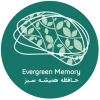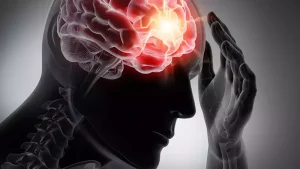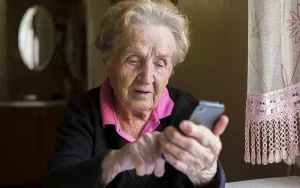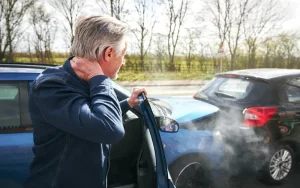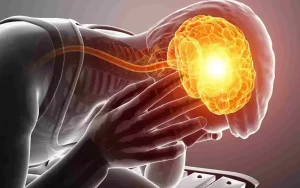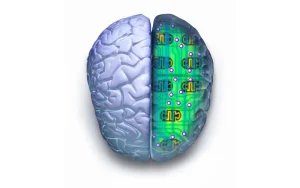Summary: Researchers indicate that experiencing traumatic brain injuries may elevate the likelihood of developing glioma brain cancer in the future. The study reveals that such brain injuries lead to specific genetic mutations interacting with inflammation, creating conditions conducive to the transformation of brain cells into cancerous forms. Scientists at the UCL Cancer Institute have offered valuable insights into the molecular mechanisms through which injuries might play a role in the onset of gliomas, a relatively uncommon yet frequently aggressive type of brain tumor.
After a brain injury, certain brain cells called astrocytes have the ability to transform into cells that resemble neural stem cells, capable of generating new neurons. This transformation is influenced by specific factors, such as Notch signaling. However, in a healthy brain, most astrocytes maintain their original form after injury, even though they may show some stem cell characteristics. Interestingly, when it comes to the development of brain tumors, the rules change. The protective mechanisms that keep astrocytes in check seem to break down, leading to the transformation of these cells into cancer-initiating glioma stem cells. This process involves the inactivation of the p53 tumor suppressor protein and the activation of an oncogene called H-RasV12. Understanding these dynamics may offer insights into how brain injuries and gliomas are connected.
We don’t fully understand how certain genes are involved when injuries prompt cells to revert to an earlier state. This is important in the context of glioma, a type of brain cancer that often recurs after treatment. The post-treatment environment, characterized by inflammation, seems to play a significant role in this recurrence. One specific gene, p53, is interesting because it normally prevents cells from going back to an earlier stage and is frequently inactive in gliomas. In regions of the brain where new neurons can form, p53 helps regulate this process. Examining datasets from different studies, we found that astrocytes (a type of brain cell) with disrupted p53 were more common in injured brains. This suggests that p53 may act as a safeguard against injury-induced changes in astrocytes.
Prior studies hinted at a potential connection between head injuries and an elevated risk of brain tumors, yet the evidence remained inconclusive. The recent research conducted by the UCL team sheds light on a potential mechanism behind this link. It implicates genetic mutations working in tandem with inflammation in brain tissue, altering cell behavior and increasing the likelihood of them becoming cancerous.
While the study primarily involved mice, it suggests the importance of delving into the applicability of these findings to human gliomas. Led by Professor Simona Parrinello, the research proposes that brain trauma might contribute to an elevated risk of developing brain cancer later in life.
Gliomas, tumors originating in neural stem cells, were traditionally thought to arise less frequently from more mature brain cells like astrocytes. However, recent discoveries indicate that, following an injury, astrocytes can revert to exhibiting stem cell characteristics.
To explore whether this property makes astrocytes prone to tumor formation post-brain trauma, Professor Parrinello and her team utilized a pre-clinical mouse model. They induced brain injury in young adult mice, permanently marking astrocytes in red and deactivating the p53 gene—a key player in suppressing various cancers. A control group underwent the same procedure, but the p53 gene remained intact. Another group experienced p53 inactivation without any accompanying injury.
Professor Parrinello explained, “Usually, astrocytes, named after stars due to their highly branched structure, change when injured—retracting branches and becoming more rounded. Although not entirely stem cell-like, they undergo alterations. As the mice aged, we observed a complete reversion to a stem-like state with markers resembling early glioma cells capable of dividing.”
This observation led Professor Parrinello and her team to believe that specific gene mutations, in collaboration with brain inflammation triggered by acute injury and escalating during natural aging, increase the likelihood of astrocytes initiating cancer. Injecting mice with a solution known to induce inflammation expedited this shift to stem-cell-like behavior.
To validate their hypothesis in human populations, the team, collaborating with Dr. Alvina Lai, analyzed electronic medical records of over 20,000 individuals with head injuries. Comparing brain cancer rates with a control group matched for age, sex, and socioeconomic status, they discovered that individuals with a head injury were nearly four times more likely to develop brain cancer later in life than those without. Despite this, it’s crucial to note that the overall risk of developing brain cancer is low, estimated at less than 1% over a lifetime, even after sustaining an injury.
Professor Parrinello explained, “In regular tissues, there are many mutations that usually don’t cause significant effects. Our discovery implies that when an injury happens on top of those mutations, it has a combined effect.
“In a young brain, inflammation is low, so the mutations don’t show major impacts even after a severe brain injury. However, our mouse research suggests that as the brain ages, inflammation rises throughout, especially at the site of the previous injury. This might reach a certain level where the mutation starts to become noticeable.”
Read More : Innovative brain recovery process following traumatic brain injury
References
https://neurosciencenews.com/tbi-brain-cancer-22561/
